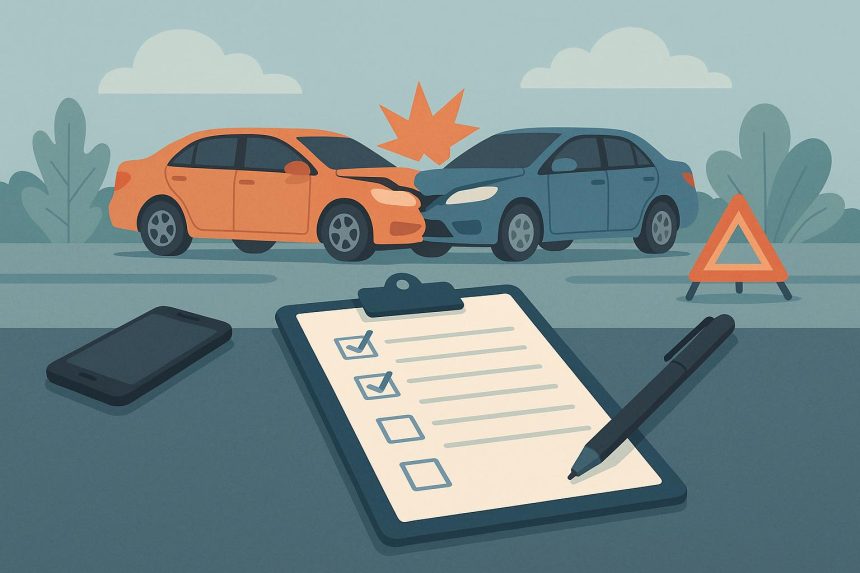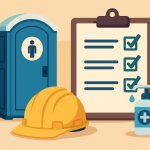A serious car accident can turn a normal day upside down in seconds. Between the noise, confusion, and adrenaline, it’s easy to feel overwhelmed, but the steps taken in those first minutes matter. Remaining calm and taking the appropriate steps during the aftermath will help protect your health, your finances, and much more.
In a moment like that, clarity is everything. Many people now rely on this real-time accident awareness and victim-support resource to stay informed about local serious crashes and to better understand what to do next if they’re involved in one. Knowing how to respond makes a difficult situation safer and less stressful for you and everyone around you.
This guide breaks down what to do after a serious crash in clear, practical terms. You’ll learn how to make sure you collect the right information, communicate with first responders, and protect your health and legal rights in the hours and days that follow.
1. Check for Injuries & Call for Help
The very first priority after a collision is making sure everyone is safe. Take a breath, steady yourself, and check to see if you or anyone else has injuries. Shock can dull pain, and not all injuries are immediately obvious, so move slowly and pay attention to how you feel.
If there are any signs of injury, or if the crash involved high speed, airbag deployment, or visible damage, call 911 right away. Emergency responders can assess the situation, provide medical care, and secure the scene to prevent further harm. Even in crashes that seem minor, it’s wise to request a medical evaluation. Internal injuries and concussions are common and can go unnoticed at first.
Turn on your hazard lights, set out flares if you have them, and stay out of moving traffic. If your vehicle is drivable and it’s safe to do so, move it to the side of the road. Otherwise, stay buckled in until first responders arrive. Your safety comes first, and calm, careful actions in these first moments lay the groundwork for everything that comes next.
2. Stay Calm and Avoid Assigning Blame
Emotions can run high after a crash. Confusion, shock, frustration, and even anger are all natural. You have to remember, though, that this is a moment where staying composed matters. Try to speak slowly, breathe deeply, and focus on what needs to happen next rather than who is at fault.
Avoid arguing with the other driver or making statements like “I’m sorry,” even if you feel compelled to be polite. Apologies or assumptions about what happened can be used against you later. Police and insurance companies will sort out the details based on evidence, reports, and witness accounts.
Instead, keep communication simple and cooperative. Make sure everyone is safe, confirm that emergency services have been called, and be prepared to share basic information once it’s appropriate. Remaining calm protects not only your well-being, but also your ability to handle the steps ahead with confidence and clarity.
3. Exchange Information & Document the Scene
Once help is on the way and everyone is safe, you’ll want to gather some important information. Information collected at this moment helps ensure the facts are clear even after memories fade.
Start by exchanging basic information with the other driver, including names, phone numbers, and insurance details. Keep the conversation brief and focused. If there are witnesses nearby, ask for their contact information as well. Their perspective may be useful if you have to fight for fair compensation later.
It’s also helpful to take a few moments to document the scene. Photos and notes can provide valuable clarity:
- The position of the vehicles and any visible damage
- Road conditions, weather, and traffic signs or signals
- Skid marks, debris, or anything else that seems relevant
You don’t need to become an investigator here. Just do your best to capture what you see. Take pictures from multiple angles and jot down any details you think might be relevant later. Even short videos while walking around the scene can help create a clear visual record.
Finally, ask the responding officer for the incident or report number before leaving. This makes it much easier to follow up once the official report becomes available. The more organized and thorough you are now, the more confidently you can navigate the steps ahead.
4. Seek Medical Evaluation (Even If You Feel Fine)
After the initial shock of a crash wears off, injuries often become more noticeable. Symptoms like stiffness, headaches, dizziness, or numbness can appear hours or even days later. Getting checked by a medical professional as soon as possible is not negotiable. This makes sure any hidden conditions are discovered, and it also documents your condition should you need it for your insurance claim later. Keep copies of any medical evaluations, treatment plans, and receipts — they can be important later.
5. Notify Your Insurance Company and Stay Organized
Once you’ve received medical care and things have settled, contact your insurance company to report the accident. Stick to the facts you know, like where it happened, when, who was involved. Avoid guessing or offering opinions and don’t admit fault. If you later choose to consult an attorney, they can speak with the insurance company on your behalf.
It also helps to keep all related documents in one place, such as:
- The police report or incident number
- Photos and notes from the scene
- Medical paperwork and receipts
- Insurance claim documents
Staying organized eases stress and makes sure nothing gets missed during the claims or recovery process.
6. Consider Speaking With a Lawyer if Things Get Complicated
Not every accident requires legal help. But if you suffered injuries, fault is disputed, or you feel pressured by insurance adjusters, talking to a personal injury attorney can clarify your options. Many attorneys offer free consultations and only get paid if they help you recover compensation. Local Accident Reports, an online platform that reports local accident news, can connect you with a local attorney to help you determine your path forward.
Legal support can be especially helpful if:
- Your medical bills are growing
- You’re missing work due to injuries
- The other party is disputing responsibility
- You feel unsure about your rights
The goal is simply to ensure you have the guidance you need to move forward confidently.
Final Thoughts
Car accidents are chaotic, unexpected, and often frightening. But knowing what to do afterward brings a sense of control to an overwhelming moment. Focus on safety first, gather key information, get medical care, and stay organized throughout the process. With the right support, the road ahead becomes easier to navigate, one step at a time.
Lynn Martelli is an editor at Readability. She received her MFA in Creative Writing from Antioch University and has worked as an editor for over 10 years. Lynn has edited a wide variety of books, including fiction, non-fiction, memoirs, and more. In her free time, Lynn enjoys reading, writing, and spending time with her family and friends.















